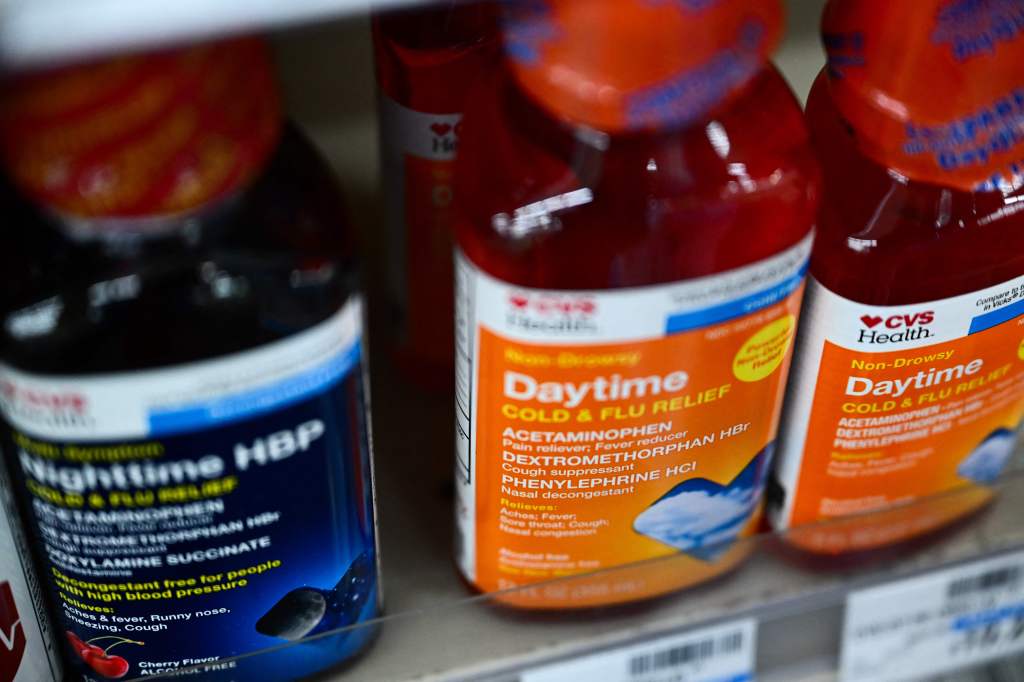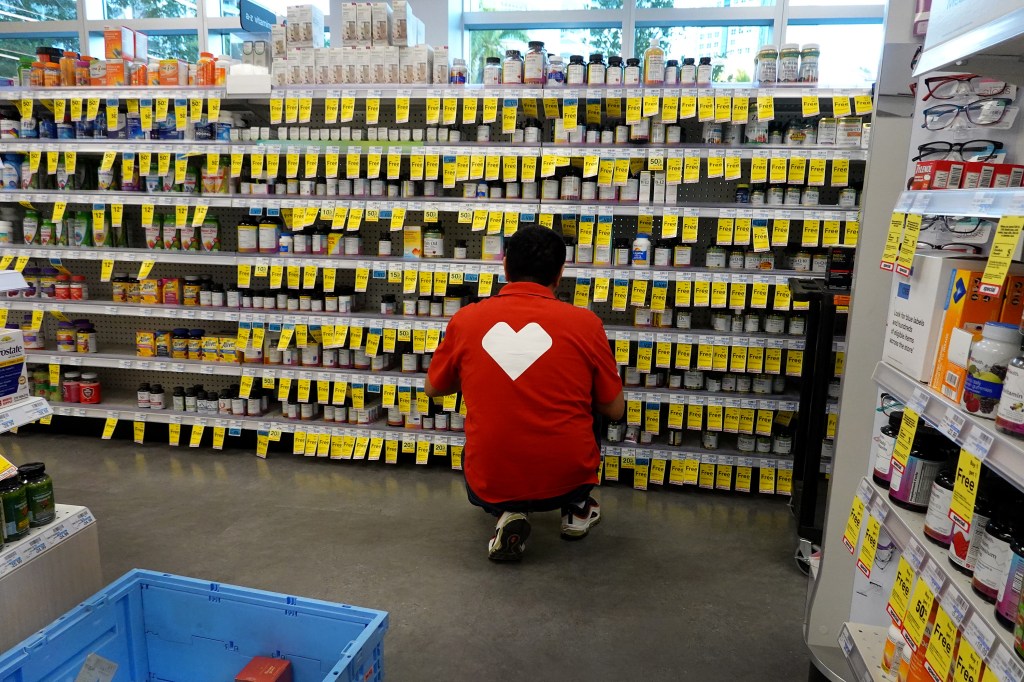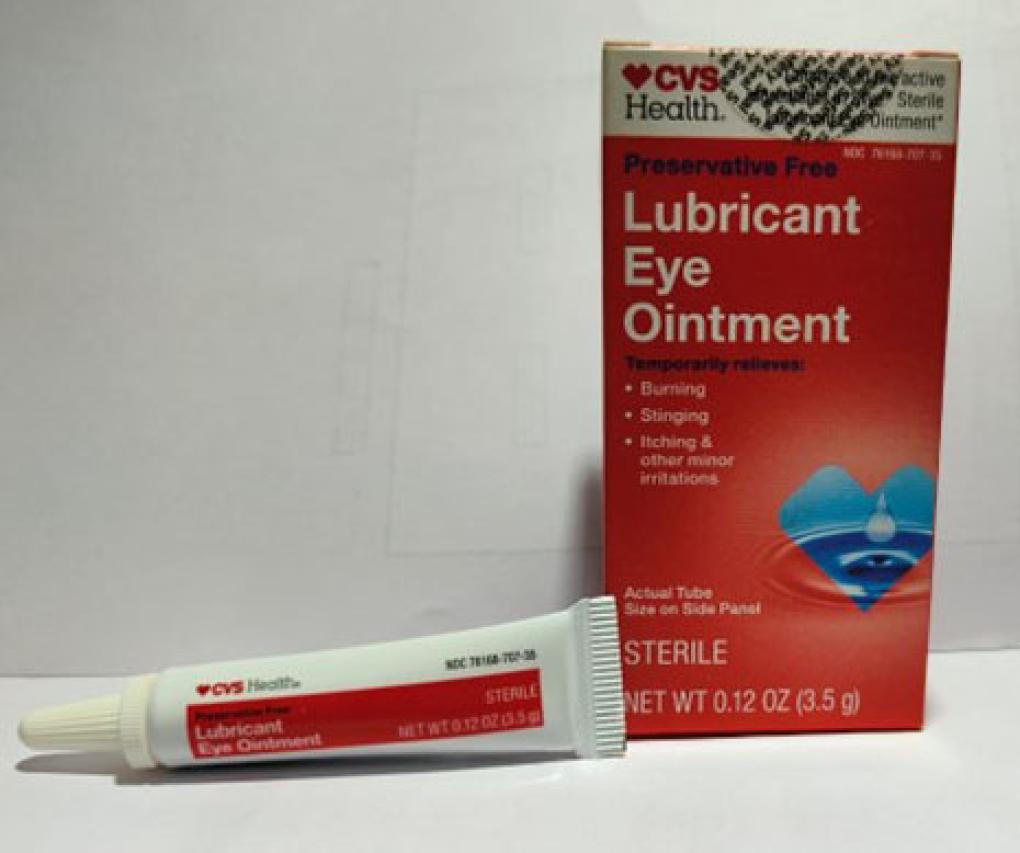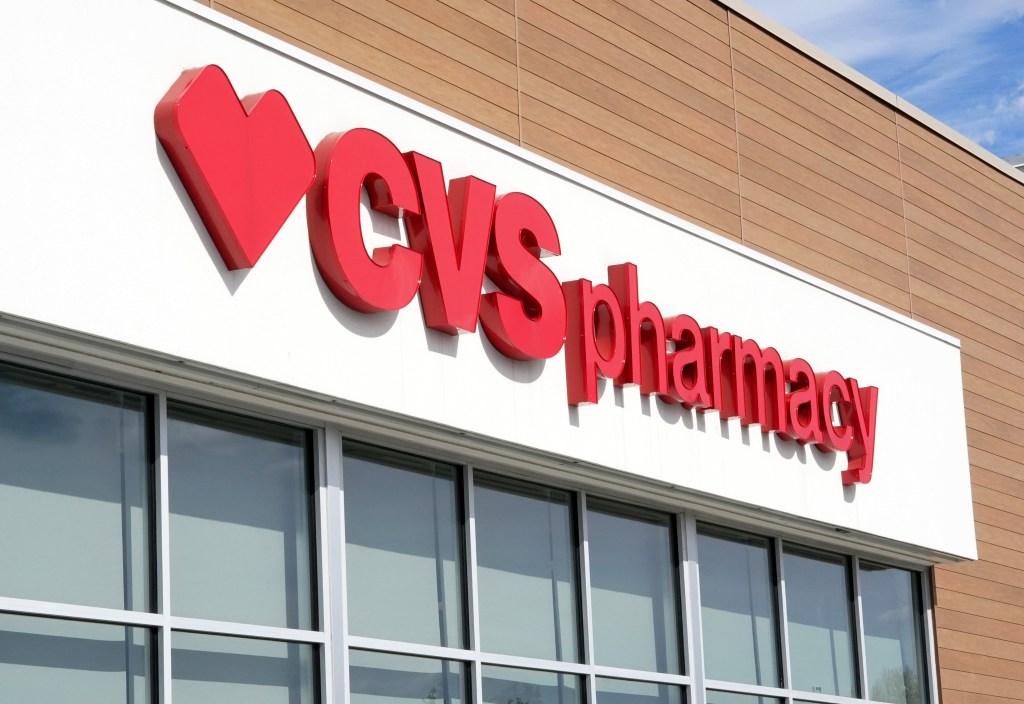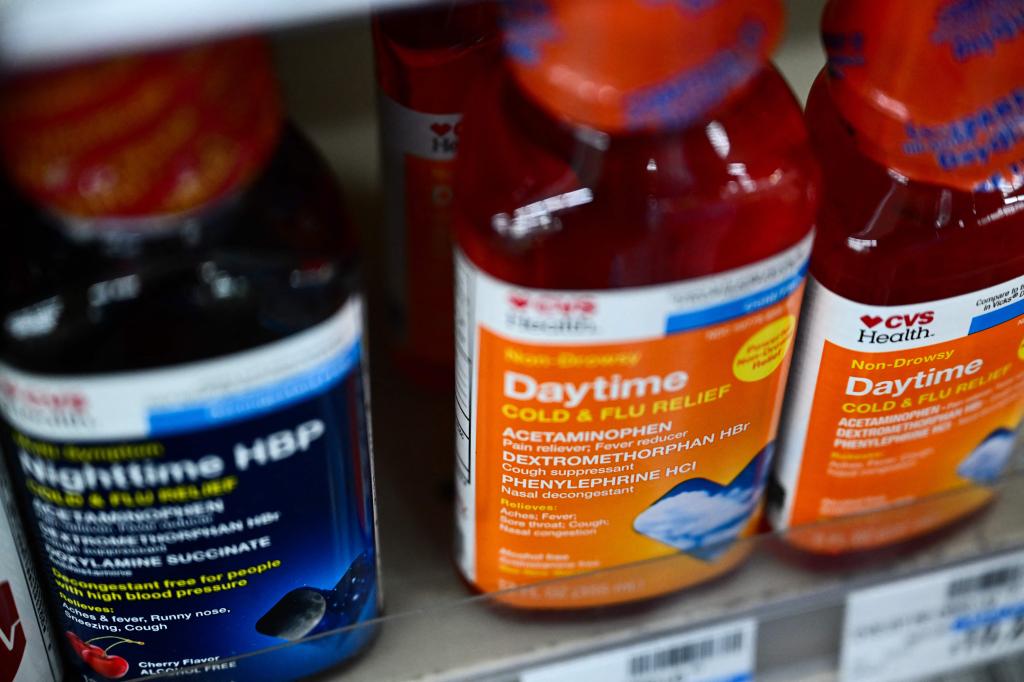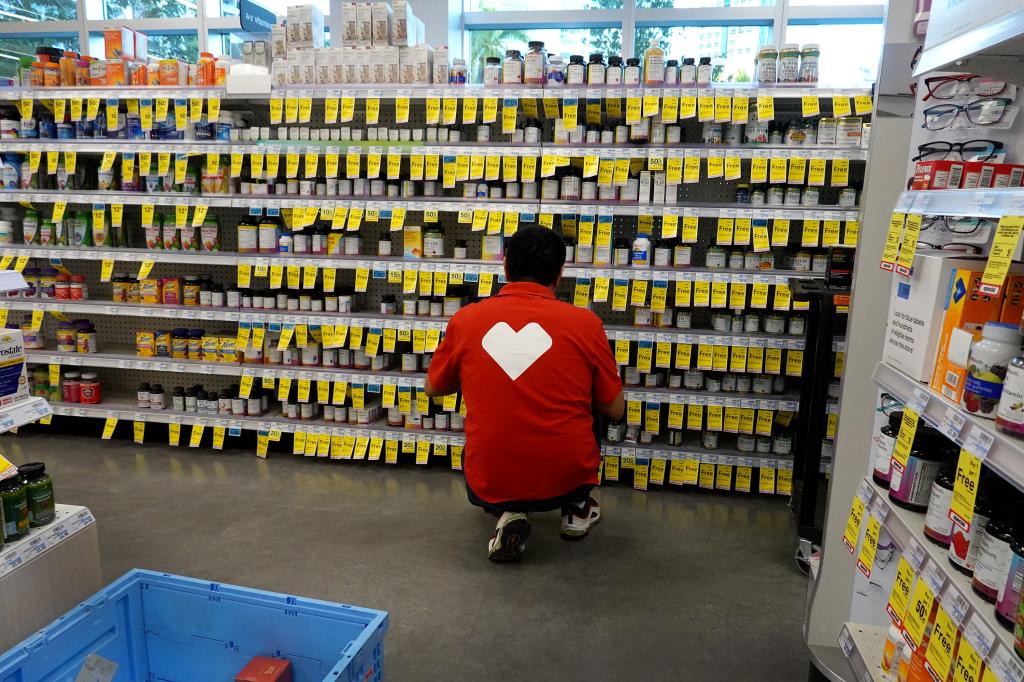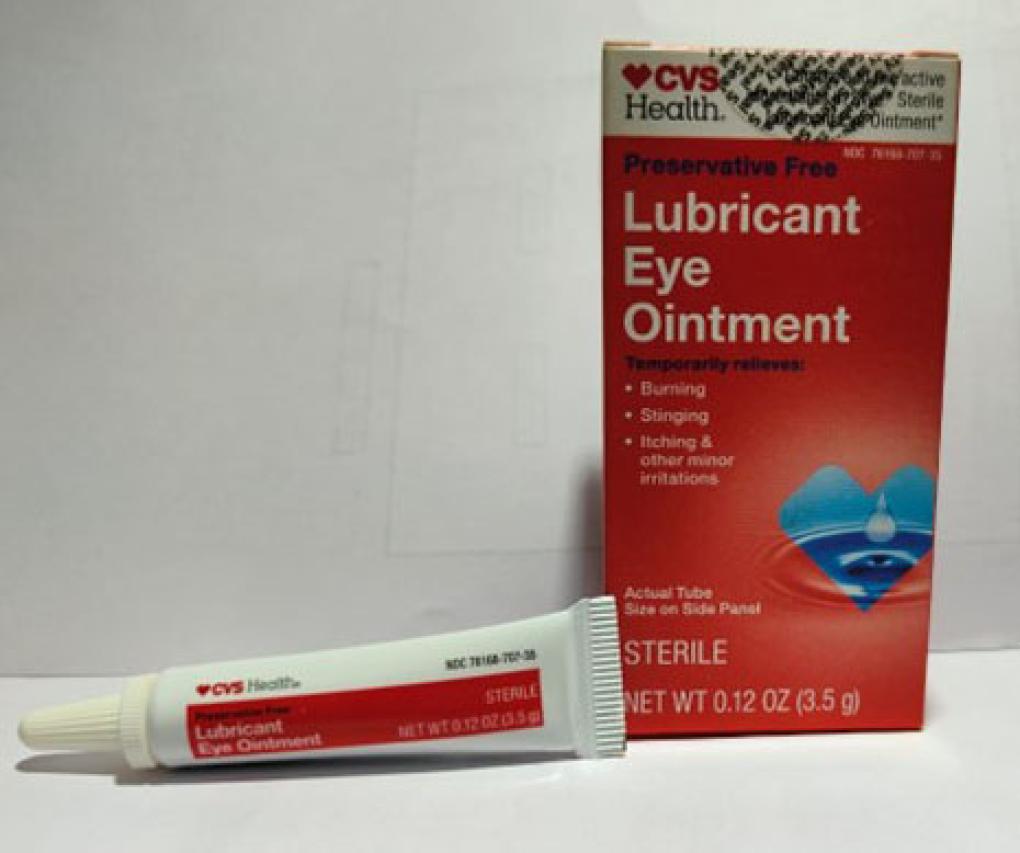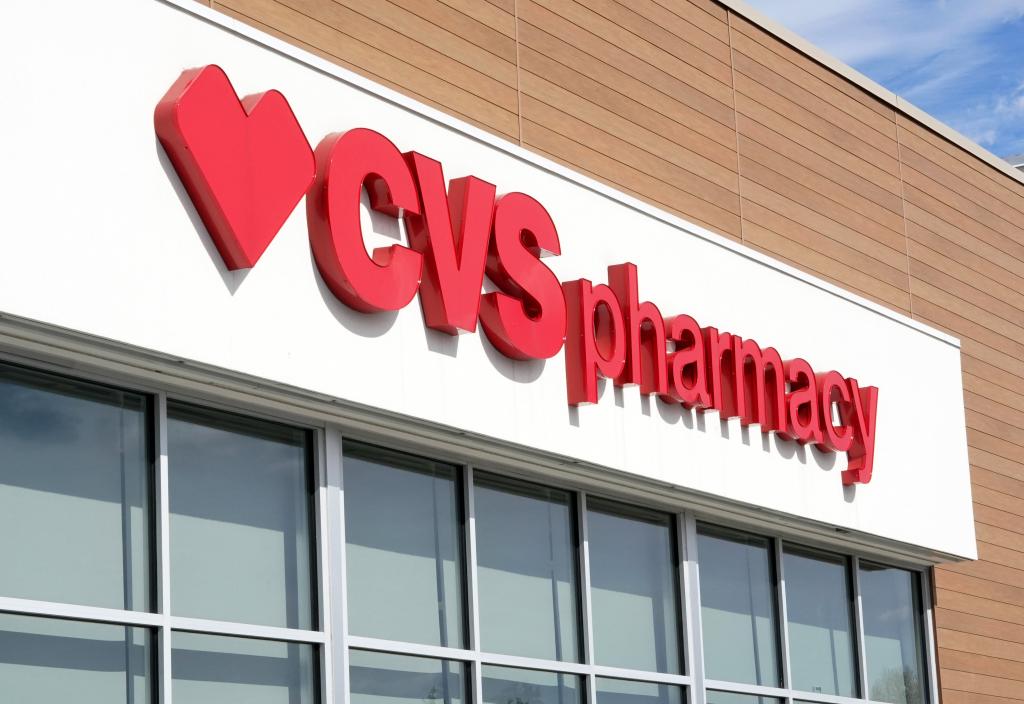CVS-branded nasal spray for babies recalled after finding it is made with ‘machines used to produce pesticides’
Contact The Author
Scores of generic medicines produced in-house by pharmacy chain CVS have been recalled over the last decade after they were found to have been produced in unsanitary conditions, according to a report.
For example, CVS-branded nasal sprays intended for infants were recalled after the machines used to produce them were also used to make pesticides, Bloomberg News reported on Monday.
Another children’s medication used to relieve fever and pain was recalled after the factory in which it was made was found to have used contaminated water, according to Food and Drug Administration data reviewed by the outlet.
In the last 10 years, CVS has recalled 133 over-the-counter generic drugs due to safety concerns — nearly twice as many as Walgreens and almost three times as many as Walmart, according to an analysis which found that the retailer has relied on low-cost manufacturing that came at the expense of safety and quality.
In 2019, FDA inspectors visited a Florida facility belonging to Unipharma, a contract manufacturer used by CVS. The inspectors reportedly found that water used in the drug-making process contained a bacteria that could be deadly to children with compromised immune systems.
CVS ended up recalling several of its over-the-counter generic drugs including cherry-flavored pain and fever medicine for kids, mixed berry children’s allergy relief and pineapple-flavored children’s cough syrups — all of which were produced by the now-defunct Florida manufacturer.
A CVS spokesperson told Bloomberg News that the chain prioritizes “good manufacturing and ethical sourcing practices and the ability to meet our strict standards and testing practices.”
The spokesperson added that CVS store brands “are designed to maximize quality and safety, work as intended, comply with regulations and satisfy customers.”
Joan Collins, a 78-year-old Nassau County resident, alleged in a lawsuit against CVS that her eyes became red and swollen, she developed headaches and she started seeing double after using CVS-branded eye drops that she purchased from a local CVS pharmacy last November.
A month before Collins used the eye drops, an inspection by the Food and Drug Administration found that the medicine was produced in a facility in India where workers walked around barefoot, paint was peeling off the walls and bacteria was turning up in samples.
The FDA issued a warning to consumers not to take the eye drops in late October, but they remained on store shelves at least two weeks after the fact, which led to Collins purchasing them, according to Bloomberg.
Collins alleged in her lawsuit, which was filed on Jan. 30 in Brooklyn federal court, that she hadn’t completely regained her eyesight months after taking the eye drops.
A doctor who examined Collins blamed the eye drops for her condition, which led to her being hospitalized for a week, according to the lawsuit.
In response to her lawsuit, CVS acknowledged selling the eye drops but denied “that the product at issue in this action had quality oversight issues or was unsanitary or defective in any respect.”
CVS, which outsourced the manufacturing of the eye drops to a company in India, also denied it is responsible for manufacturing process or quality control of the factories that make its generic drugs.
Start your day with the latest business news right at your fingertips
Subscribe to our daily Business Report newsletter!
Thanks for signing up!
The Post has sought comment from Collins and CVS. Collins’ case is still pending.
“We’re looking forward to gathering our evidence about what CVS knew and when it knew about the problems that it had on its hands when it put at risk the vision of people here in the United States,” Collins’ Manhattan-based attorney, Stephen J. Fearon, Jr, told The Post.
An FDA spokesperson told Bloomberg that pharmaceutical companies that outsource production of drugs to other companies are “legally responsible for approving or rejecting drugs manufactured by the contract facility, including for the final release.”
But CVS is recognized by federal regulators as a “private-label distributor” which hires other companies to make generic drugs.
A loophole for store-brand drugs places the onus on manufacturers of the generic drugs to make sure they adhere to quality standards, according to FDA guidance.
CVS has outsourced production of generic drugs to at least 15 manufacturers that have been cited for problems, according to Bloomberg.

